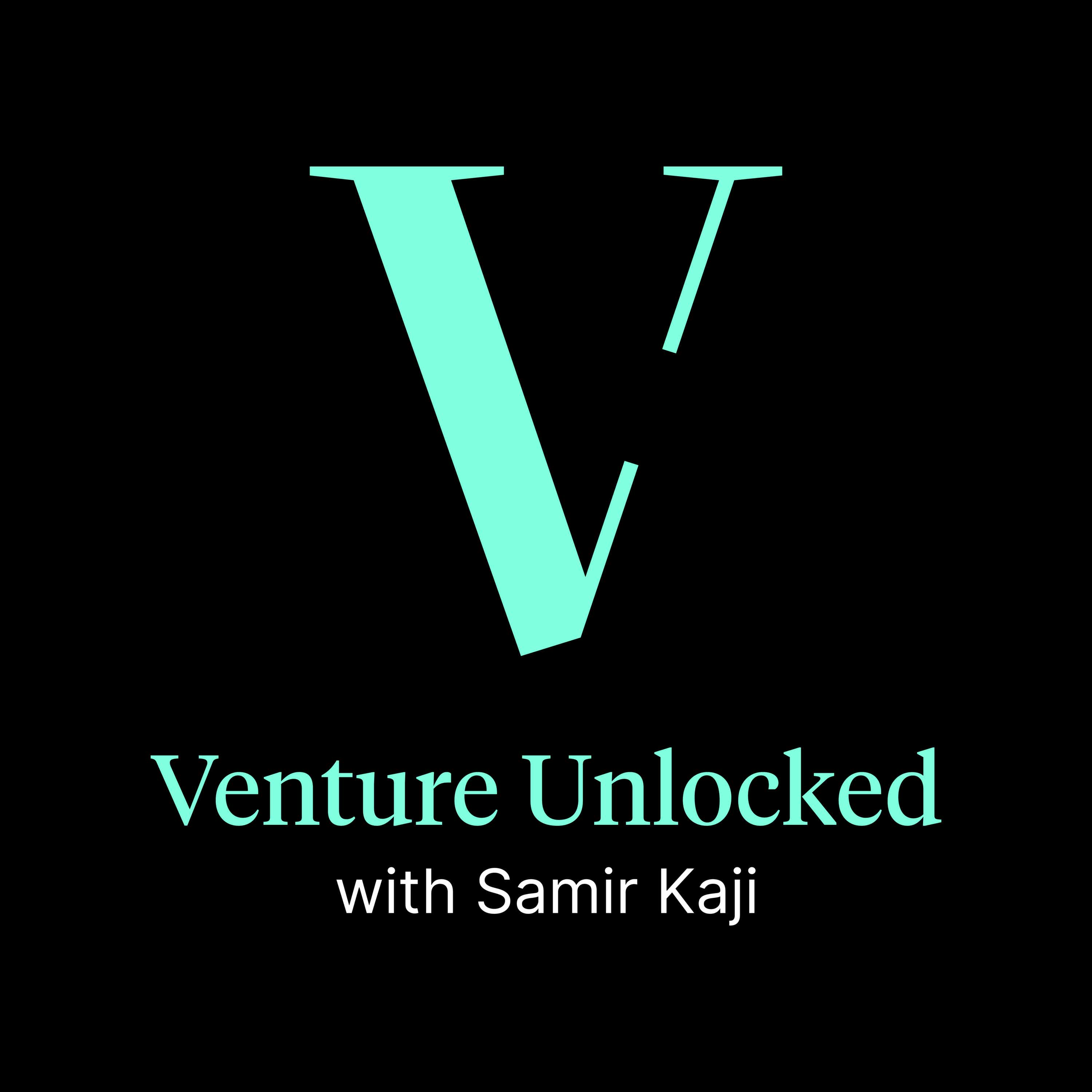.png)
Founder's Fridge
Founder's Fridge is the podcast where food and entrepreneurship collide.
Each week, we talk to startup founders about what is in their fridge and what that reveals about how they work, think, and build. From protein shakes and energy bars to takeout boxes and grocery-store staples, the meals they choose tell a story.
This business podcast is not just about food. It is about habits, routines, and the human side of startup life. As our guests share what fuels them through long days and late nights, they also reflect on decision-making, resilience, creativity, and the challenges of growing a company.
Whether it is a smoothie before a pitch or cold pizza during a crunch, these stories give a unique look into the real lives of founders. The fridge becomes a window into how they balance chaos, structure, and everything in between.
If you are curious about what drives today’s entrepreneurs, Founder's Fridge offers a fresh, personal perspective. It is a show about food, business, and what it takes to keep going.
Founder's Fridge
Episode 6: Leftovers and Leadership with Courtney Zaugg, Founder of VentureVets
"I stockpile food as a comfort. I'm never out of any type of pasta. Never."
Courtney Zaugg, founder of VentureVets—a 501(c)(3) accelerator supporting veteran and military spouse entrepreneurs—and co-owner of The Contractors, a general contracting company in Indianapolis, on why her pantry drawers won't close and why she made thirty different freezer meals in one week to prep for her husband's shoulder surgery.
This conversation gets real about what founders actually eat. Courtney comes from a lineage of food entrepreneurs—great grandfather, then grandparents with catering and wholesale, then parents with restaurants that ultimately failed—which shaped everything about how she thinks about food, comfort, and survival. Growing up poor after her parents lost their restaurants taught her: you never throw away food. You freeze it.
Her morning? Skip breakfast. Just coffee. Lots of coffee. Then up and at it, traveling often for work. Her lunch? Small meal at home or meetings on the road. But dinner? That's sacred. Home-cooked meals from batch cooking on Sundays—a tradition since early in her relationship with her Marine Corps veteran husband.
Her system: Make big meals on weekends. Tacos, wonton soup, chicken soup, grilled meats. Make extras. Freeze the rest. Pull them out when it's busy. Because Courtney does not like making a meal every night. She loves making big meals from her Greek-American upbringing where food brought everyone together. Just not every single night.
Her fridge? Dairy everywhere—eggs, cheese sticks, cottage cheese, yogurt, lunch meat—even though her husband is allergic to milk. Her pantry? Overflowing with pasta (never runs out), cereal, trail mix, Cheez-Its, applesauce, protein bars—so full she can't close the drawers. Her freezer? A frozen turkey from Easter. Thirty different meals prepped in July (because her family demands variety, not fifteen identical chicken soups).
But here's what matters: Courtney protects Dessert First Fridays. School pickup, ice cream at the local spot, home for pizza and a movie in PJs. Food isn't restricted. It's celebrated. Nothing is off limits. Creating positive memories around food for her daughter.
Courtney also shares how her parents shut down after losing their restaurants and never taught her to cook (she learned from her grandmother), why her husband quarterbacks the morning routine so everyone gets fed, and how batch cooking isn't just efficiency—it's paying homage to her family while fueling a life building multiple businesses.
CONNECT WITH VENTUREVETS: Website: TheVentureVets.com LinkedIn: VentureVets
MORE FOUNDERS FRIDGE: Website: www.foundersfridge.com Substack: https://substack.com/@foundersfridge Podcast: https://www.buzzsprout.com/2535711
Subscribe for more conversations about what actually fuels founders.
Check out our Substack!
Heidi: So hi, Courtney. Welcome to the Founders Fridge. Thanks so much for being on the show.
Courtney: Good to see you, Heidi. Thanks for having me.
Heidi: So tell me a little bit about VentureVets. What's the organization? What do you have going on?
Courtney: So VentureVets is a 501(c)(3) accelerator that supports veteran and military spouse entrepreneurs. My husband's a Marine Corps veteran and it's been a bit of a passion project. We started around 2017, the same time we started our first business, and it has grown. So far this year, we've led three cohorts and have big plans for the future.
Heidi: So you said you started another business in 2017. So I guess this is not your first entrepreneurial endeavor. Am I right?
Courtney: It is not. I think it's our eighth or seventh or eighth. Our first official business was 2017. The Contractors is a general contracting company that does residential and commercial construction. We're based here in Indianapolis, but we had done a couple other things before that. I started a new product in site certification and economic development with an engineering company. So I had been doing some consulting, worked with engineers, worked with site selectors, and thought we could create a more comprehensive and really valuable program. And that's what we did. So that, I think, was the initial kind of spark of like, yeah, we could do this. And then in 2017, we launched our first venture.
Heidi: Okay, so you know that on the podcast, we talk about what you eat while you're doing all these ventures. So I think what I would just ask now is, you know, what is your current kind of daily eating schedule look like? Like, what are you eating in your day to day?
Courtney: So I would say it's different for my family versus me, but I skip breakfast typically. For me, it's just a lot of coffee in the morning. And part of that is our process in the morning is like up and at it. But depending on where I am, I travel often for work. So often I am meeting out for lunch, which can make things difficult, I think, in terms of nutrition and sleep. But if I'm home, then I'll have a small meal at lunch, and then we get together for dinner as often as we can and have a home-cooked meal. But I don't cook every day. We do batch meals on the weekends and have. Actually, well before, early in the relationship with my husband, we would just do lots of different meals on Sundays and do leftovers through the week and that has continued.
Heidi: So what's one—give me an example of one of those batch meals. So what are you cooking? Is this like a slow cooker thing?
Courtney: Sometimes. I would say kind of half and half. So if it's nice out we're grilling something—chicken, veggies, burgers, steaks. When it's warm out in the winter there's always some type of soup. But we do a lot of tacos. Tacos are a staple. It might sound silly, but we do wonton soup. It's a staple in our house. Chicken soup is a staple in our house. And then generally grilled chicken, some type of grilled meat. It's typical for us. But, you know, we also stock our meals. So I'll make extras and then freeze the rest. And so we're just a leftover family. And so I'll make enough to get us through the week. And if there's extra, put it in the freezer and then pull it back out when it's a week that's really busy and I don't want to cook.
Heidi: So I have to tell you, I am definitely not lining up guests in this way, but every single founder that I have interviewed has talked about making soup and batch making soup. I kid you not. That is like the common thread.
Courtney: That's interesting. But I think, you know, soup is comfort food, though. You know, even when it's made, you know, in a way that's not calorie dense, there's the warming of it is really just comforting. And so we even do some soups in the summer because of that, because one, we have it on hand and it's quick and easy, but also it's a comforting type of meal.
Heidi: Definitely. Yeah. So has this been the kind of the same eating habits like throughout the last like ten, fifteen years of entrepreneurship? Did it change over time?
Courtney: I think, yes, that has been true. I think the composition of our meals has changed, especially with adding to our family. We have a daughter. And so and we're getting older, which means, you know, we want to—I would say that my focus on nutrition has increased a lot since I started my career, even before entrepreneurship, just starting my career. And so it's much more intentional about what we're making. The batch making of the food and any leftovers has not changed. But I also say, you know, that the making the big meals is something I really enjoy. I do not like one bit making a meal every night. Like, it's just not enjoyable for me. And I get questioned. My husband's family has asked me questions about it. And so I think part of it is I came from a Greek family. And in fact, my parents—so I come from a lineage of food entrepreneurs, like great grandfather, then grandparents had catering and a wholesale business. My parents had restaurants, but they lost the restaurants. They failed. But food was always something that brought everyone together. It was, you know, it was a comfort and it was a peace offering, you know. And so the batch making and the lots of food was just something I've always enjoyed. And I think because of how I grew up in the Greek American culture. And so, you know, transferring that into our family, we're a relatively small family. We have one kid, my husband and I and one kid. And so I'm just used to making all this food. Like, what are we going to do with it? And of course, you know, also coming from a big family, like you don't throw away food. You just freeze it. It'll be fine. Just freeze it. Don't worry about the expiration dates. It'll work out. Right. And so I think that, you know, paying homage to my family, but I think that has translated into, you know, into our relationship with food, as we're, you know, we've been building these businesses. I think it's also a part of my personality, but also necessary of like, you have to be very efficient with your time, very efficient in order to be effective in everything, right? Be, you know, good in your relationships, be good in your work. And so for me, it's like, this is the way I can still have comfort, still, you know, spend time on making sure I have enough nutrients that my brain can function. And, you know, I'm a nice person, because I am feeding myself and my soul, but also, you know, be efficient with the time and kind of focusing my time on areas that in order to excel in whatever way. So that's the through line.
Heidi: It's funny. One of the reasons I started the podcast is because I had a restaurant, which I think, you know, just from our shared background. And when I was in the restaurant, I just got so burnt out of cooking because, you know, you just have these emergencies like someone doesn't show or like, you know, you have to let someone go and you got to step into the kitchen. And so to me, food just became all cost of goods sold like it was all just a business. And then when the restaurant when I closed it in 2022, just ever since then I've been like I couldn't be bothered with cooking. It's bad. Because I really do love to cook but it's just not—and also I will say I'm very spoiled. Like my wife cooks me every meal that I eat, you know? It's really bad.
Courtney: Lovely!
Heidi: Oh, yeah. It's amazing. I know. And I mean, she definitely cooks enough where there are leftovers, but they are much more like that individual meal. You know, like slow cook pork on the big green egg and like make tacos with the meat, you know, really good stuff. Whereas for me, I'm like, where's my Chomp stick? I'll just like in the morning, I'll just down an AG1, throw in an espresso pod, walk out the door with a Chomp stick, eat the Chomp stick, get really angry over the course of the day.
Courtney: That's right. Oh my gosh. Two points to that. One is your comment about not cooking, not wanting to cook after the restaurants. My parents didn't either. I learned to cook from my grandmother. And it was so fascinating to me, you know, when I went off on my own and I'm like, how do I cook? How do I make coffee? And my husband's like, your parents didn't teach you? I'm like, they didn't. They just like—they were—they shut, in many ways, they shut down. But I think, you know, that sounds common. It's just, you know, I think that is a hard part about entrepreneurship is you can have your passion turn into something that really then becomes something that you don't like. And there's always a chance for that. There's always a chance for that. But I think then you have people around you that take care of you. Like your wife, you know, my—the only way we would get out the door, like my daughter would get fed and dressed in the morning, the dogs would be fed and stay alive. And I would stay alive as if, because my husband is like, you know, quarterbacking everything in the morning, making sure I have my coffee. But he also knows that, you know, if we come home at five o'clock, he's warming up food because I am hangry. You know, like if I haven't eaten well and nourish my body during the day, like I am not going to be a happy person. And so he will, you know, go ahead and get things warmed up for dinner for the very same reason. Like I think in entrepreneurship, it's important to have partners in whatever form, you know, your business partners and your home partners, understanding the roles of like, we have to be taken care of, too, because of all the other things that we're taking care of building the things we want to build.
Heidi: You reminded me of something. Yeah, I know. Thank God. Seriously. I actually, I don't even know what I would do if she wasn't cooking me meals. Like I really, I got to get back into the cooking because I do like it a lot. Like I love to cook, but I just, I'm just not there. You know, I'm definitely the type of person that like, I, you know, I'll open my fridge and if something is like not right in front of me, I'm not even going to look for it.
Courtney: Yeah.
Heidi: We have two—you reminded me with, like, freezing leftovers. So we have two chest freezers. And, like, we have a lot of, like, stock that's frozen in there and just a lot of stuff that...
Courtney: Oh, it's great. It's, like, yeah, really...
Heidi: Yeah, and I would never use it to make anything. You know what I mean? That's the thing. I live in such an ingredients household that unless the ingredient is fruit, I probably can't consume it.
Courtney: Oh, thank goodness for our partners.
Heidi: I know. I know. I know. Really. So like what's in your—I asked you like the, you know, the relationship with food and typically at this point in the episode, I asked the guests like what's in your fridge, but now I also want to know like what's in your fridge, what's in your freezer, what's in your pantry, you know, what are kind of the staples in the house?
Courtney: Yeah. So in the fridge, staples are lots of dairy. Actually, my husband is technically allergic to milk. And so the amount of dairy we consume with him being allergic to milk is pretty interesting. But it's always eggs, always cheese sticks, cottage cheese, yogurt, typically like an iced tea or a lemonade. Like have to have. And lunch meat. My husband and my daughter eat just a lot of lunch meat. In our pantry—and I don't know if this is something also that goes, it's something related to family and my family of origin, but because we also grew up very poor after losing the restaurants—I think I stockpile food as a comfort. So I have, like I'm never out of any type of pasta, never. Tons of cereal for my daughter, lots of snacks, everything from like trail mix to Cheez-Its to applesauce to dried fruit, you know, protein bars, like it's just full to the point where sometimes I can't, you know, push the drawer in. Even though, and we typically, like, you know, we'll eat through some of it. But there is something about stockpiling the dry goods that feels comforting to me. In our deep freezer, we have a frozen turkey that I bought. I don't even know when. A few months ago. Probably, I think it was Easter time. So I bought the frozen turkey. And my husband just had shoulder surgery. And he's the one that cuts. He's the chopper in the family. And so I'm like, there's no way I'm going to be able to cook and do all the other things. So one week in July, I made thirty freezer meals. So it's filled to the top with our freezer meals that we are now using during his recovery.
Heidi: So you meal prepped for this surgery? Is that what you said?
Courtney: I did. I did. Yeah. And the other thing, I guess that, you know, I know there are some folks, especially I think during, you know, for folks that are maybe trying to lose weight, it's like, I eat, you know, this one thing or this one thing for breakfast and I eat one thing for lunch. I think I could probably do that most of the time. But my husband and daughter really like variety. I mean, they just—they will get very hangry and somewhat refuse leftovers if it's like we need variety. So I can't just make, you know, fifteen chicken soup freezer meals. Everything has to be different. And I think there's something nice about that because, you know, we also are a family that enjoys trying new flavors and new things and experimenting. So everything's different and really kind of, you know, like, oh, what are we going to have this week? Let's pull out, like, I don't even know what I made three months ago.
Heidi: In my fridge right now, we have some leftovers of like a fresh red snapper that Kelly made. That's like, I know, really, really good. You know, just we have a farmer's market where we're from. And so she actually found the snapper at the farmer's market and she just cooked it with like all fresh vegetables. It was great. That's why I don't cook because like I got burnt out from cooking and then there's like very little incentive for me to like pick it back up, you know?
Courtney: No, not when she's making you red snapper. I think, you know, my level of cooking is far inferior to what your wife is serving you at home. You know, I'm just trying to like, make sure we have like the food groups. And, you know, we'll not want to get up in the middle of the night to eat snacks. So I will say during holidays, though, of course, like we kind of go overboard on stuff. But yeah, food is important.
Heidi: Remember the food pyramid and how it was, like, really wrong?
Courtney: Yes. Yes, it is. Like, totally wrong. Like, when I was growing up, I mean, I'm sure you in school, like, we're similar ages. Like, in school, they were like, this is the food pyramid. Like, you have to eat your, like, Life cereal or whatever. All the bread. This much bread.
Heidi: I know. So when you said like, I have to make sure we're getting our food groups, I was thinking like, we need to like rebalance all of our food groups.
Courtney: We really do. We really do. And I would say like in our family, and I don't know if this, it sounds like it might be with your family too, but we don't—we eat everything, you know, it's not as—we don't restrict foods, you know, when we're, if we're trying to lose weight or we're not restricting foods. You know, I don't know if we're on a—we've been eating, you know, very calorie dense foods for a while. It's like everything's in moderation, but we eat everything where there's no like things are not off limits. So on that note, since my daughter was very little, I do school pickups. And so Fridays had become when she was a toddler, we called it Dessert First Fridays. So I'd pick her up from school. There's a local ice cream place right around the corner from our house. We'd go get ice cream. I'd get maybe French fries. And it's always like, this is our kind of Zen time to kind of ease into the weekend. And then Fridays also, like after that, we'll go home, we'll get takeout. Typically it's pizza and we put on our PJs and watch a movie. And so I think that, you know, hopefully that relationship with ice cream for her translates in the future of like those are really positive memories, right? And so I know there's a lot of folks are like you know ice cream's bad or cake is bad and sure everything, you know, everything in moderation is best. But you know, the memories of we're celebrating the end to a week—sometimes it was a really great week and sometimes it's a really hard week—but either way we're going to celebrate by spending time together, getting a little treat and then ending it together with the movie at night. And that's been I think really important. But always, you know, like the celebrations do evolve around food.
Heidi: So what is for dinner tonight? Like, what are you eating for dinner tonight?
Courtney: Leftovers. Leftovers. I've seen the freezer meals this week with a—it was a chicken sausage, potato and spinach soup, almost like a zuppa toscana. And then I made pork, like with apple and barbecue sauce and rice. So that's what we're having for tonight.
Heidi: Awesome. So where can people find more about you and VentureVets?
Courtney: TheVentureVets.com or on LinkedIn. We do a lot of posts both personally, but also on the VentureVets page on LinkedIn. So that's where you'll find those posts.
Heidi: Awesome. Thanks so much for being on the show, Courtney. Really appreciate it. This was fun.
Courtney: This was fun. Thanks a lot, Heidi. Thanks.
Retry
Podcasts we love
Check out these other fine podcasts recommended by us, not an algorithm.

The Dinner Plan
Maggie Hoffman
Food Friends: Home Cooking Made Easy
Food Friends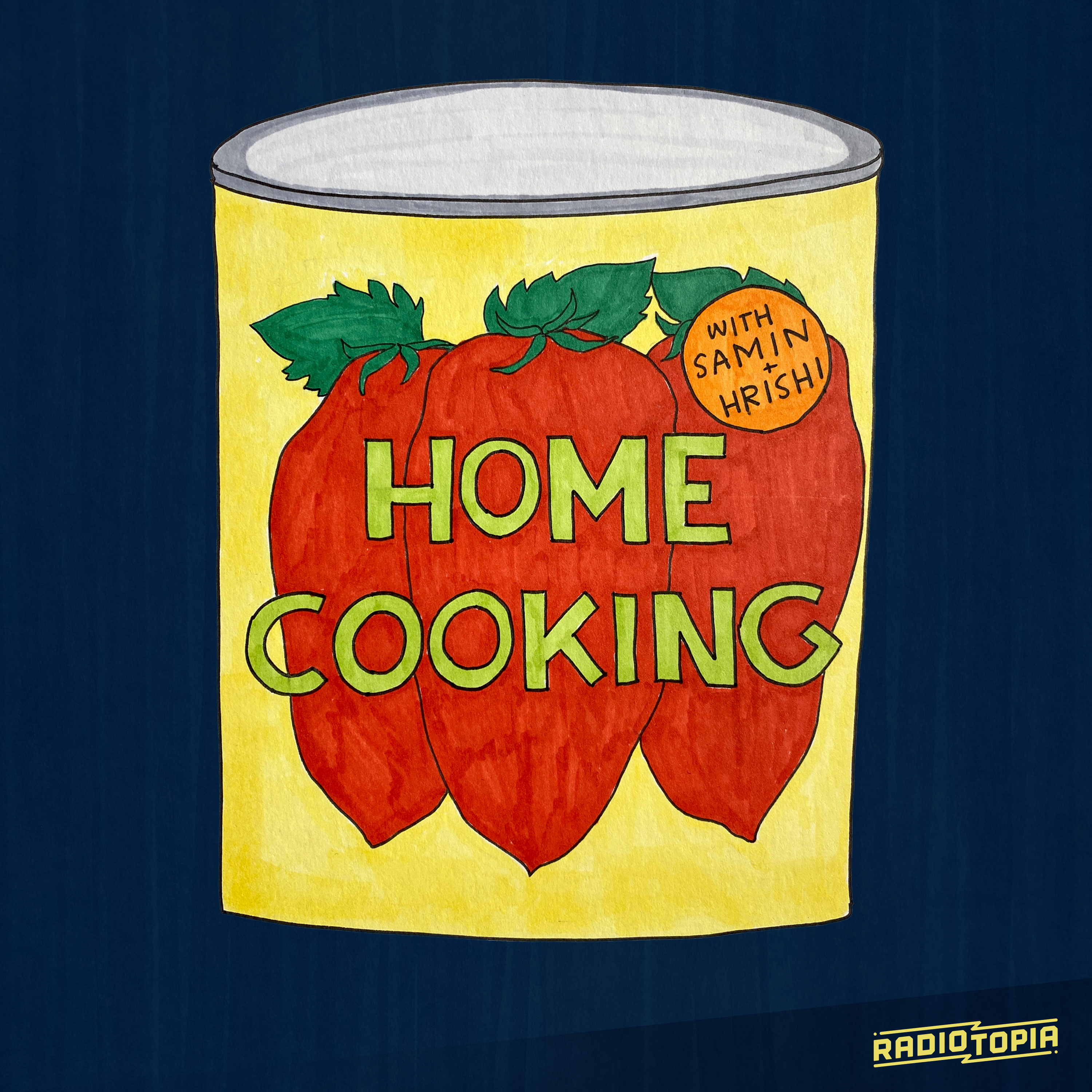
Home Cooking
Samin Nosrat & Hrishikesh Hirway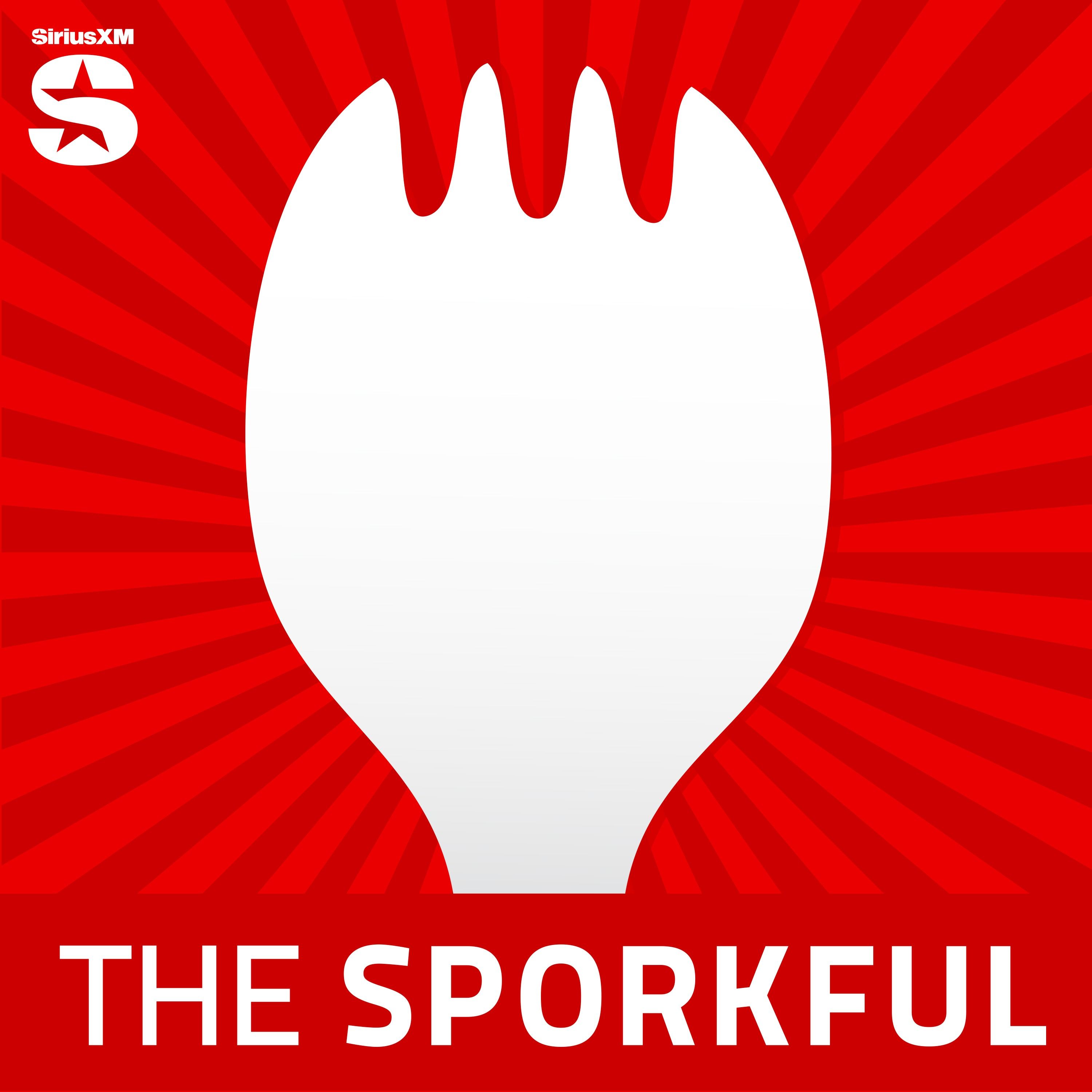
The Sporkful
Dan Pashman
A Hot Dog Is a Sandwich
Mythical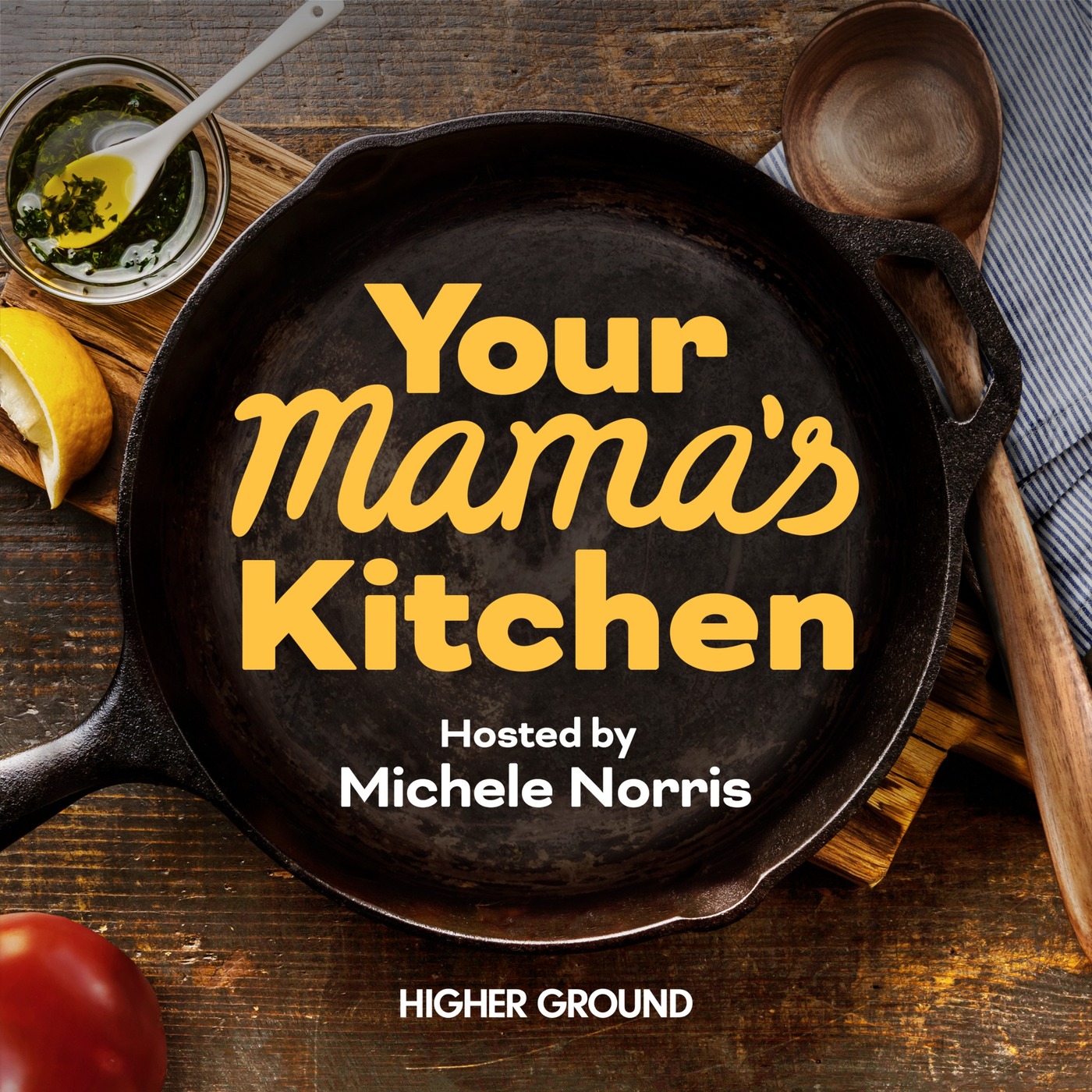
Your Mama’s Kitchen
Higher Ground
Venture Everywhere
Everywhere Ventures
The Recipe with Kenji and Deb
Deb Perelman & J. Kenji López-Alt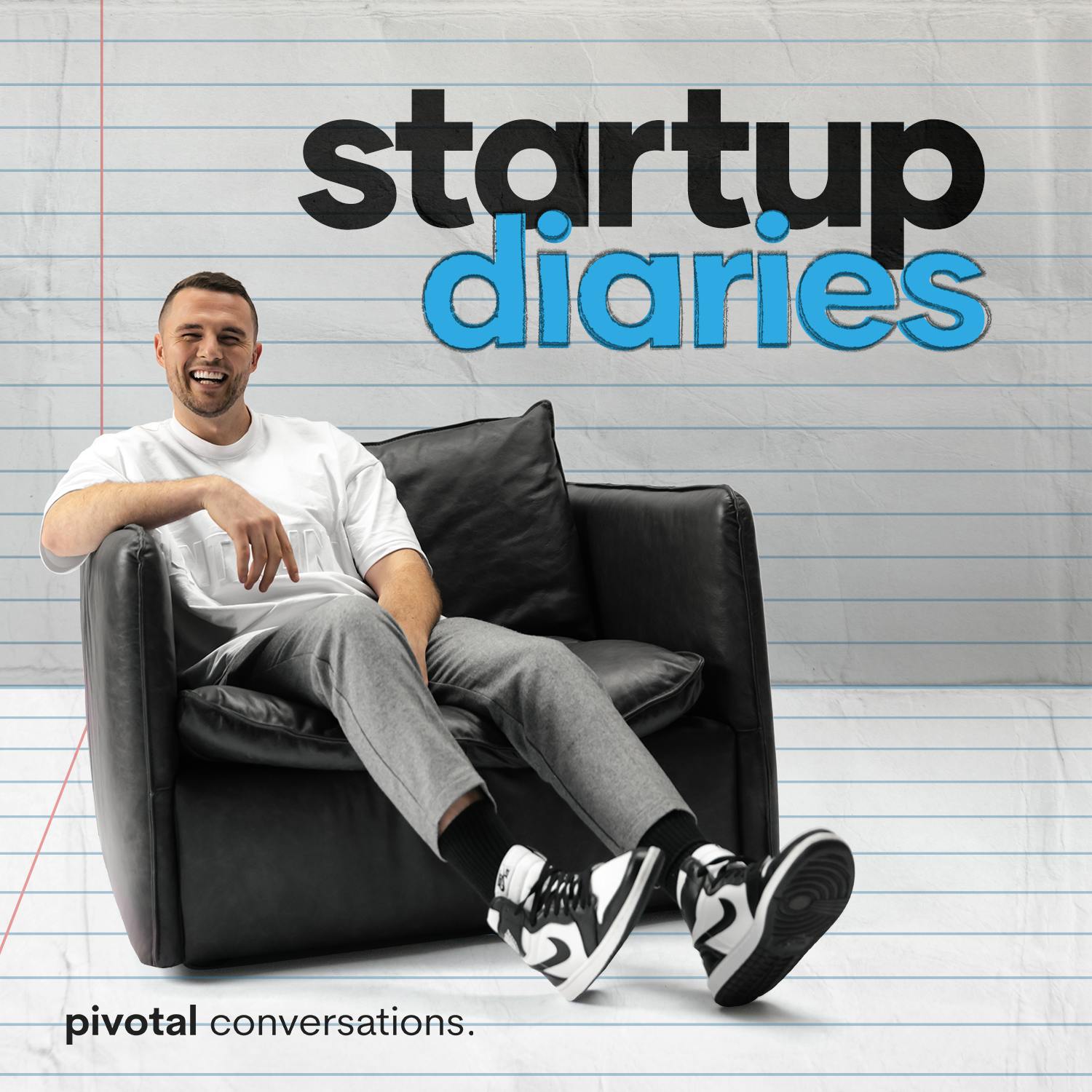
Startup Diaries
Pivotal Conversations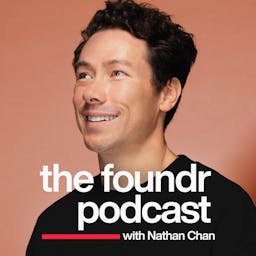
The Foundr Podcast with Nathan Chan
Foundr Media


